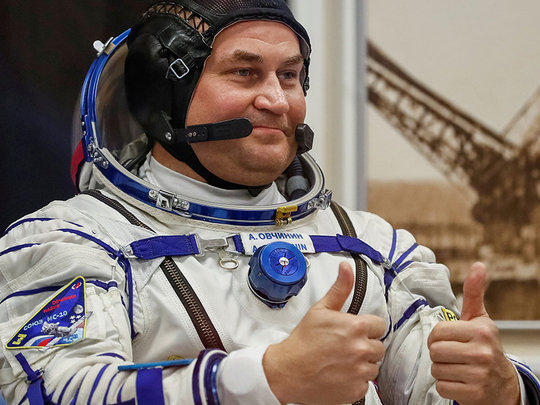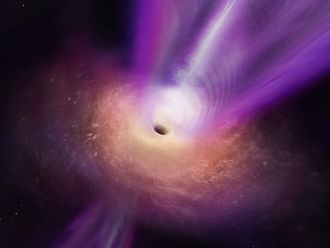
Moscow: Russian cosmonaut Aleksey Ovchinin on Tuesday said the G-force during last week's emergency landing of the Soyuz spacecraft felt like a concrete block on his chest but he and NASA astronaut Nick Hague are now in "great" health.
Ovchinin and Hague were forced to make an emergency landing after an accident on their rocket minutes after blast-off to the International Space Station, with the rapid deceleration subjecting them to a painful G-force overload.
In an interview with state Rossiya-24 television, Ovchinin said that "the direction of this (G-force) overload during the descent was from the chest to the back, so imagine that somebody put a big concrete block on your chest that is seven times your weight."
The 47-year-old cosmonaut who has already flown into space once before in 2016, nevertheless said that the G-force was "not that big, a bit less than 7G."
7G is below what cosmonauts have to withstand during training and has not caused long-term ill-effects.
"I am feeling well, so is my colleague, US astronaut Nick Hague," Ovchinin said.
"The doctors concluded that our health is good, even great."
Both are now waiting for the results of an investigation into why the Soyuz rocket malfunctioned and never made it to the International Space Station, forcing Ovchinin to command a ballistic descent back to Earth amid a communication breakdown with mission control.
Ovchinin said he and Hague understood something was wrong when emergency lights came on in the cabin and used their training to get through it.
"For the most part, the rescue system worked automatically, and we just followed the system," he said.
In footage of the flight released by the Russian space agency Roscosmos Ovchinin can be heard calmly telling mission control that there has been an "accident" and even quipping about a particularly "short flight" before the feed is cut off.
"There was no time to be nervous, because we had to work," he said.
"We had to go through the steps that crew has to take and prepare for emergency landing... so that the crew is still functioning after landing."
NASA's Hague has already flown back to the United States following the landing, after undergoing a medical check and being questioned about the accident.











